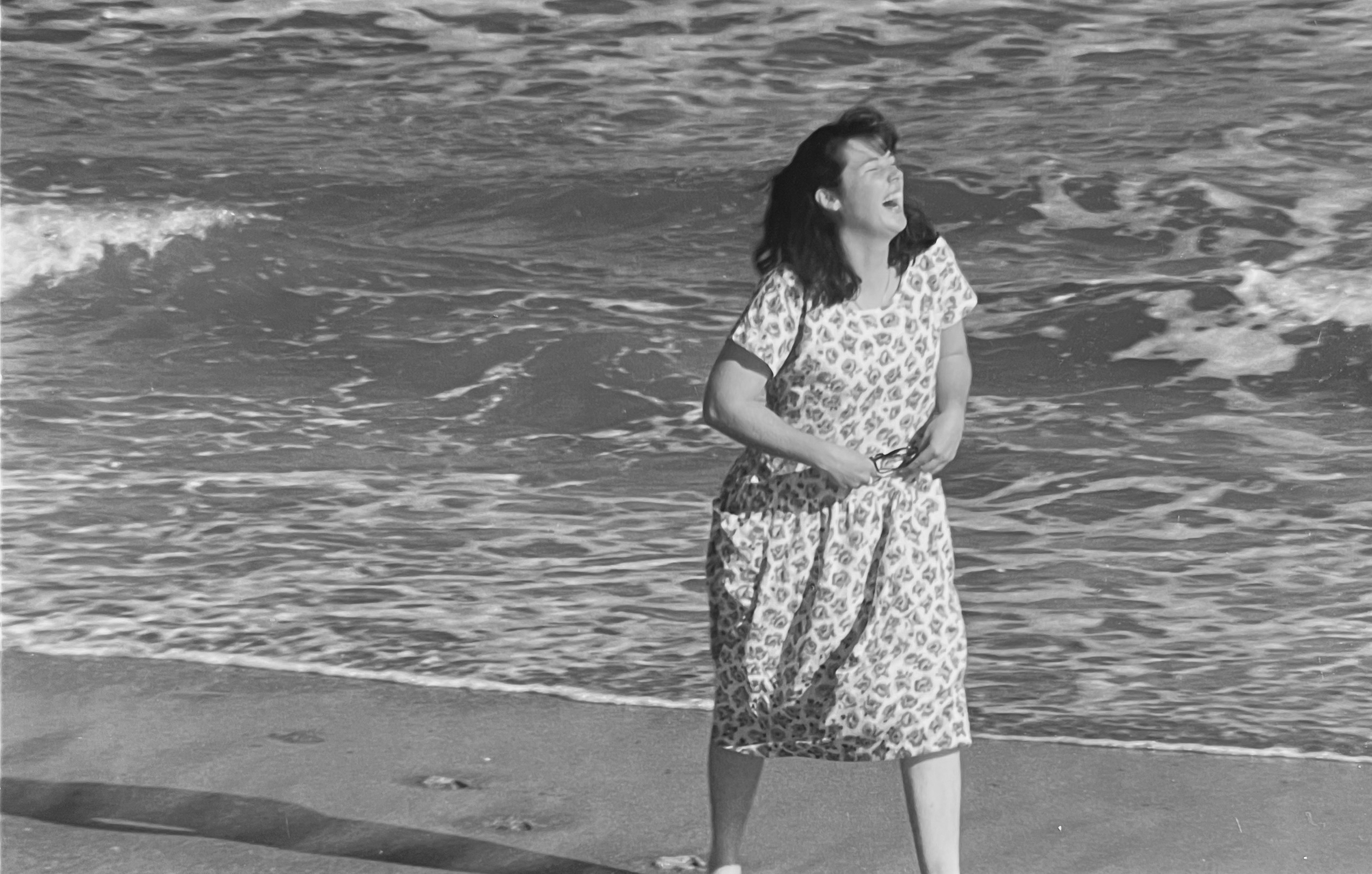She was the woman whose name became synonymous with political extra-marital affairs. In fact when you hear the name Monica Lewinsky you immediately think of Bill Clinton, THAT blue dress, and the scandal that rocked the White House in 1998.
Back then, Monica was 22 at the time, today she is 41. She has spent the majority of her life since the scandal in hiding…until now. She gave an extremely powerful TED Talk mid-March in Vancouver, Canada, that has been seen and heard around the world. It is the first time she has spoken openly about what she went through.
Her talk titled ‘The Price of Shame’ is a candid insight into the life of someone whose every move was scrutinized, analyzed, made fun-of and commented on by the media and the public. It almost drove her to suicide. Hers was a scandal that became exacerbated because of the immediacy of online media which was emerging at the time.
Her affair with Bill Clinton really showed how powerful a click can be. But her TED Talk wasn’t just about her experience going through public humiliation, it is about why we need to understand the greater implications of online bullying and internet-shaming.
She dropped some major truth bombs during her speech, and by the end you will have a completely different perspective of an incident that has been played out by pop culture over the years.
Monica, who today is a public speaker and activist starts off with a funny anecdote about being at a recent Forbes ’30 under 30′ event where back in 1998, the oldest of this group would’ve only been 14. She joked with them saying they are probably only familiar with her name from rap songs, nearly 40 to be exact.
“Not a day goes by that I’m not reminded of my mistake,” she begins after telling her funny anecdote, also saying that most 22 year-old’s who make mistakes don’t make them with the President of the United States. “And I regret that mistake deeply.”
When her story broke in January of 1998, it was the first time the three traditional news sources (radio, TV & newspapers) were usurped by the internet.
“What that meant for me personally was that overnight I went from being a private figure to a publicly humiliated one worldwide. I was Patient Zero of losing a personal reputation on a global scale almost instantaneously.”
Monica talks about the herd mentality of virtual “stone throwers” being ignited in a way that the world had never seen before, and this was even pre-dating the social media era. The negative attention she received was unprecedented.
“I was branded as a tramp, tart, slut, whore, bimbo and of course ‘that women,” she said. “I was seen my many but actually known by few.”
Here’s where she starts getting into the inherent issue of cyber-bullying.
“And I get it, it’s easy to forget that ‘that woman’ was dimensional, had a soul, and was once unbroken. When it happened to me there was no name for it. Now we know it as cyber-bullying and online harassment.”
As she continued sharing she tells the audience that today she views her experience as a valuable tool for observation and speaks about it in the hope that it will bring about a cultural revolution in the way we view the issue of online harassment.
During 1998, some of her private phone conversations were taped by a so-called friend and then given to the police, which were subsequently played by the media for the world to hear. Her private words were made public without consent, without context and without compassion.
She likens this type of identity-stealing sans consent to the recent female celebrity nude photo leak which broke online in the fall of 2014 when a number of celebrities had their iCloud accounts hacked. Then of course the infamous Sony leaks later that year where the most juicy and talked-about pieces of private information leaked were emails between high-ranking executives never meant for the world to see.
Monica says this type of information and data-stealing gives permission for anyone and everyone to start forming opinions and voicing them on the many public forums available. However, the consequences for victims have gone beyond just the shaming aspect. Our culture has taken a turn for the worst when internet bullying and harassment has forced some young men and women to take their lives.
She mentions the incident of a young gay male Rutgers college student who was secretly taped being intimate with a partner which was then shown to the world to publicly humiliate him. The bullying took such a toll on him, that he committed suicide in order to escape. It is heart-breaking that we have been hearing more and more stories like this, and that suicides as a result of bullying are what is the norm, such as the story of transgender teen Leelah Alcorn who took her own life after being humiliated, rather then rallying as a collective culture to get to the root of this issue.
It was hearing about these incidents that made Monica look at the trend of bullying and humiliation in a different way. The revolutionary ways the internet had changed the world also had a dark side.
“Every day online people, especially young people who are not developmentally equipped to handle this, are so abused and humiliated, that they can’t imagine living to the next day, and some tragically don’t. And there’s nothing virtual about that.”
Between 2012-2013 a UK advocate group released a statistic saying there was an 87% increase of calls relating to cyber-bullying. Another study out of the Netherlands Monica mentions states that for the first time cyber-bullying has surpassed in-person bullying as the cause of suicidal thoughts. And in 2014 research showed that humiliation was a more intensely-felt emotion than happiness or anger.
“Cruelty to others is nothing new. But online, technologically-enhanced shaming is amplified, uncontained and permanently accessible,” she says.
Instead of being humiliated by your friends, family or community, it is now multiplied greatly.
“Millions of people, often anonymously, can stab you with their words, and that’s a lot of pain. And there are no perimeters around how many people can publicly observe you and put you in a public stockade.”
The imagery she conjures is so on point and very confronting. But it is not just every day citizens who have made online harassment a major trend. The media is also exacerbating this in monumental ways.
“For nearly two decades we have slowly been sowing the seeds of shame and public humiliation in our cultural soil, both on and offline. Gossip websites, paparazzi, reality TV, politics, news outlets, and sometimes hackers, all traffic in shame.”
Just let that quote sink in for a moment. Yep, these are the very mediums that have enabled cyber-bullying to flourish. It is a sobering thought, but as we listened to her words in the video below, it reiterated to our team exactly why we exist as a positive media source. To be an antidote to what has been growing in our “cultural soil” for way too long.
The de-sensitization and permissive shaming behavior promoted by the media has led to trolling and cyber-bullying. Monica quotes that we are living in a culture of public humiliation, a culture that rewards this kind of disgusting behavior.
“There is another kind of price tag attached to public shaming. The price does not measure the cost to the victim, which notably women, minorities and members of the LGBTQ community have paid. But the price measures the profit of those who prey on them.”
“A marketplace has emerged where public humiliation is a commodity and shame is an industry.”
Wow. There is no other way to describe it. She is 100% right. How many of us an be honest with ourselves and recall a time when we have written a controversial comment online and been “rewarded” with clicks and likes? That’s what she is talking about. And when the comment is something humiliating or threatening which gets “voted up” or “liked” or “shared” this immediately gives the perpetrator an indication that their horrendous behavior is acceptable.
Although her personal story didn’t revolve around being shamed on social media, the click-bait mentality was the same and Monica identifies how the dimensional person at the center of the bullying can often get lost amongst the noise
“The more we click on this kind of gossip, the more numb we get to the human lives behind it. And the more numb we get the more we click. All the while someone else is making money off the back of someone else’s suffering.”
The more controversial the statements, the bigger the advertising dollars. When we think of a show like E!’s ‘Fashion Police’ for example, it is built off this culture of shame where the more rude, mean and controversial the comments, the more people watch. Seriously folks, what have we done to this world?
“With every click we make a choice. The more we saturate our culture with public shaming, the more accepted it is, the more we will see behavior like cyber-bullying, trolling, hacking and online harassment. This behavior is a symptom of the culture we’ve created.”
She says that changing this behavior has to start with each of us evolving our individual beliefs and actions. Monica brings up how this individual change of heart has affected issues like homophobia and racism. The societal change that happened after our thinking evolved for issues such as same-sex marriage, sustainability, indicates the same thing could happen with online harassment and cyber-bullying, if we push for a cultural revolution.
“Public shaming as a bloodsport has to stop! It’s time for an intervention on the internet and our culture. We need to return to a long-held value of compassion.”
She talks about how we have a compassion deficit in our society, then shares a quote by Brene Brown: “shame can’t survive empathy.”
One person can make a difference. It starts with all of us. Monica’s words go way beyond what she suffered through 15 years ago and speaks right to the heart of the current crisis our generation and future generations are going to continue facing unless we do something to change the narrative.
It’s not just up to governing bodies and corporations to make change happen, each of us has the power to be an antidote to negativity online by reporting it, standing up to it, and even writing something positive. With our “right to freedom of expression” comes the responsibility of that freedom which Monica says benefits us all.
She says the reason she gave this powerful TED Talk was nothing to do with politics (and the assumption that Hillary Clinton may run as a Democratic candidate for the 2016 Presidential elections) and everything to do with timing. She felt the time was finally right to take back her narrative and empower many others who have suffered along with her, and worse, to do the same.
We highly encourage you to watch the full video below and share it with your friends, kids, colleagues and community. Change can only happen if we are willing.





















2 thoughts on “Monica Lewinsky’s Call For A Cultural Revolution In Groundbreaking TED Talk”